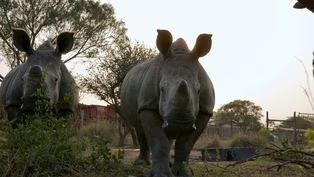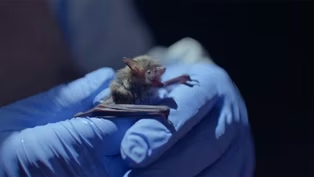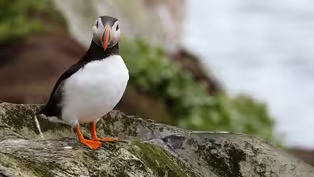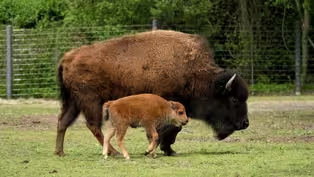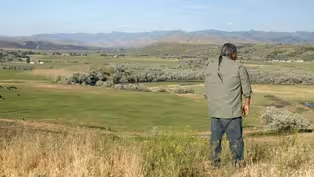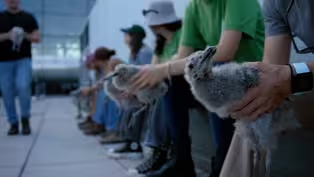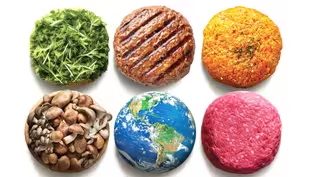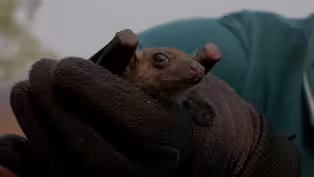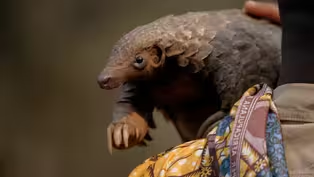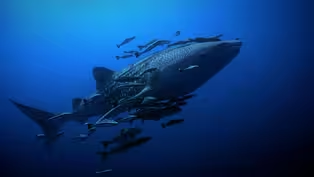
Road Warriors | WILD HOPE
Special | 9m 16sVideo has Closed Captions
Fernanda Abra leads an initiative along Brazil's roadways, where vehicles kill 475 million animals.
Fernanda Abra leads a crucial conservation initiative along the roadways of Brazil, where vehicles annually kill about 475 million vertebrates — more than double the country's human population. She spearheads over 300 projects targeting roads with high wildlife casualties.
Problems playing video? | Closed Captioning Feedback
Problems playing video? | Closed Captioning Feedback
Major support for NATURE is provided by The Arnhold Family in memory of Henry and Clarisse Arnhold, Sue and Edgar Wachenheim III, The Fairweather Foundation, Charles Rosenblum, Kathy Chiao and...

Road Warriors | WILD HOPE
Special | 9m 16sVideo has Closed Captions
Fernanda Abra leads a crucial conservation initiative along the roadways of Brazil, where vehicles annually kill about 475 million vertebrates — more than double the country's human population. She spearheads over 300 projects targeting roads with high wildlife casualties.
Problems playing video? | Closed Captioning Feedback
How to Watch Nature
Nature is available to stream on pbs.org and the free PBS App, available on iPhone, Apple TV, Android TV, Android smartphones, Amazon Fire TV, Amazon Fire Tablet, Roku, Samsung Smart TV, and Vizio.
Buy Now
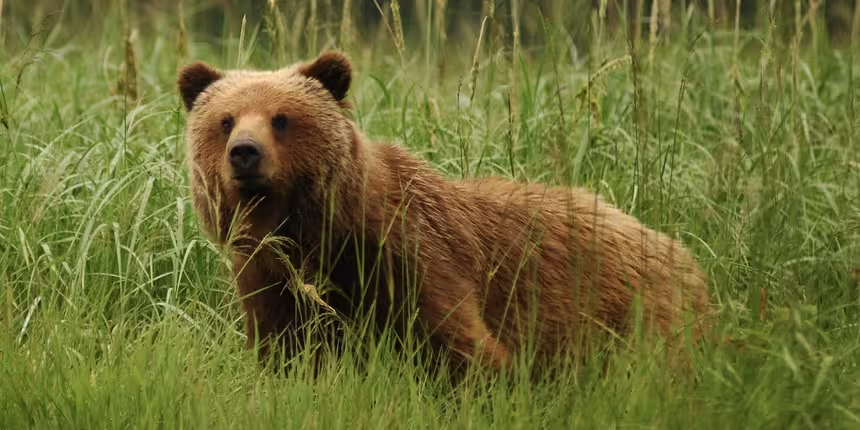
Explore More Ways to Watch
Bring the beauty and wonders of wildlife and natural history into your home with classic NATURE episodes.Providing Support for PBS.org
Learn Moreabout PBS online sponsorshipMore from This Collection
WILD HOPE is a new series of short films that highlights the intrepid changemakers who are restoring our wild places and sparking new hope for the future of our planet.
Video has Closed Captions
How does a densely populated nation like Singapore transform into a lush green oasis? (14m 51s)
Video has Closed Captions
For decades, rhinos have been the face of poaching. (16m 28s)
Video has Closed Captions
As a deadly fungus devastates North America’s bats, scientists are testing new ways to save them. (14m 47s)
Video has Closed Captions
In the Westman Islands, one community has banded together to save lost young puffins. (13m 15s)
Video has Closed Captions
Sixty million American bison once thundered across the prairies of North America. (18m 52s)
Reclaiming Bear River | WILD HOPE
Video has Closed Captions
The Bear River was once a lush area with wetlands, hot springs, and abundant wildlife. (17m 25s)
Building for Birds | WILD HOPE
Video has Closed Captions
Millions of migrating birds pass through our yards, but glass windows pose a deadly threat. (16m 3s)
Mission Impossible | WILD HOPE
Video has Closed Captions
Meet the genius behind the plant-based Impossible Burger. (39m 41s)
Pangolin Protectors | WILD HOPE
Video has Closed Captions
Due to the demand for their scales, pangolins are the most trafficked animal in the world. (12m 24s)
Way of the Elephants | WILD HOPE
Video has Closed Captions
Elephant migration corridors in India are a necessary thoroughfare for one of the largest animals. (15m 11s)
Whale Shark Homecoming | WILD HOPE
Video has Closed Captions
A renowned spiritual leader is inspiring fishermen to become guardians of the world’s biggest fish. (16m 49s)
Providing Support for PBS.org
Learn Moreabout PBS online sponsorship♪ (birds chirping) ♪ ♪ (Fernanda speaking Portuguese) ♪ (birds chirping) ♪ (truck horn honking) (Fernanda speaking Portuguese) (horns honking) ♪ (Fernanda speaking Portuguese) ♪ ♪ (cars driving by) (Fernanda speaking Portuguese) (birds chirping) NARRATOR: Worldwide, roadways are a lethal threat, killing hundreds of millions of animals each year.
The crisis intensifies when rapid development hits biodiversity hotspots like Brazil.
Today, more than a million miles of roads stretch across the country, and that human connectivity comes at a high cost to wildlife.
♪ (Fernanda speaking Portuguese) (car driving by) NARRATOR: On Brazil's roads, vehicles kill nearly 9 million mammals every year.
10 years ago, biologist Fernanda Abra decided to do something about it.
(Fernanda speaking Portuguese) ♪ (traffic) (Fernanda speaking Portuguese) NARRATOR: When Fernanda's team finds a fatality, they do what they can to find a silver lining.
(Fernanda speaking Portuguese) NARRATOR: The samples are sent to research partners who analyze the animal's DNA, providing insights into the genetic diversity and health of the puma population.
More importantly, they're taking steps to prevent these deaths from happening in the first place.
(Fernanda speaking Portuguese) ♪ NARRATOR: This proactive approach is key to their mission.
(traffic) (traffic) The goal: to provide safe passage for animals looking to cross.
For more than a decade, Fernanda's team has been plotting where animals are most frequently hit.
Then they work with the government and private sector to create wildlife crossings in the danger zones.
(Fernanda speaking Portuguese) ♪ NARRATOR: They've built more than 300 underpasses, many of which get tricked out with camera traps.
(Fernanda speaking Portuguese) ♪ (grass rustling) ♪ NARRATOR: Findings show that underpasses like these can cut road deaths in half for medium and large-sized mammals.
♪ (Fernanda speaking Portuguese) (trickling water) ♪ NARRATOR: In just seven years, they've documented about 50,000 safe crossings by a wide range of creatures, including ocelots, porcupines, and pumas.
(crickets chirping) ♪ (crickets chirping) ♪ ♪ That's a lot of lives saved, but in some spots, it's not just about preventing death by collision.
Many animals here like howler monkeys, tree sloths, and kinkajous rarely descend to the ground.
For these tree dwellers, the roads act as barriers, trapping them in fragments of forest.
♪ (Fernanda speaking Portuguese) NARRATOR: That leaves them cut off from food and mates, making them more vulnerable to inbreeding and disease.
Today, nearly 40% of Brazil's primates are at risk of extinction.
(birds chirping) But Fernanda is proving that her animal crossings can help here too.
(truck engine rumbling) ♪ (Fernanda speaking Portuguese) ♪ NARRATOR: Fernanda's team has developed treetop overpasses from affordable local materials, anchored securely to concrete poles.
They test different designs side by side.
(birds chirping) ♪ (Fernanda speaking Portuguese) (birds chirping) ♪ ♪ NARRATOR: There's no question the animals are enjoying the fruits of her labor.
(capuchin monkey breathing and chirping) (truck horn honking) (Fernanda speaking Portuguese) ♪ NARRATOR: She's not alone.
Around the world, communities are collaborating and advocating for all kinds of crossings that allow animals to find safe passage.
♪ (Fernanda speaking Portuguese) ♪ ♪ ♪ ♪ ♪ ♪

- Science and Nature

Explore scientific discoveries on television's most acclaimed science documentary series.













Support for PBS provided by:
Major support for NATURE is provided by The Arnhold Family in memory of Henry and Clarisse Arnhold, Sue and Edgar Wachenheim III, The Fairweather Foundation, Charles Rosenblum, Kathy Chiao and...

